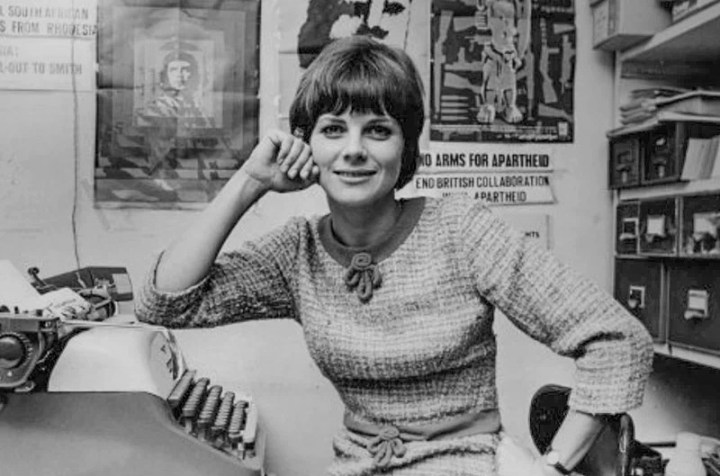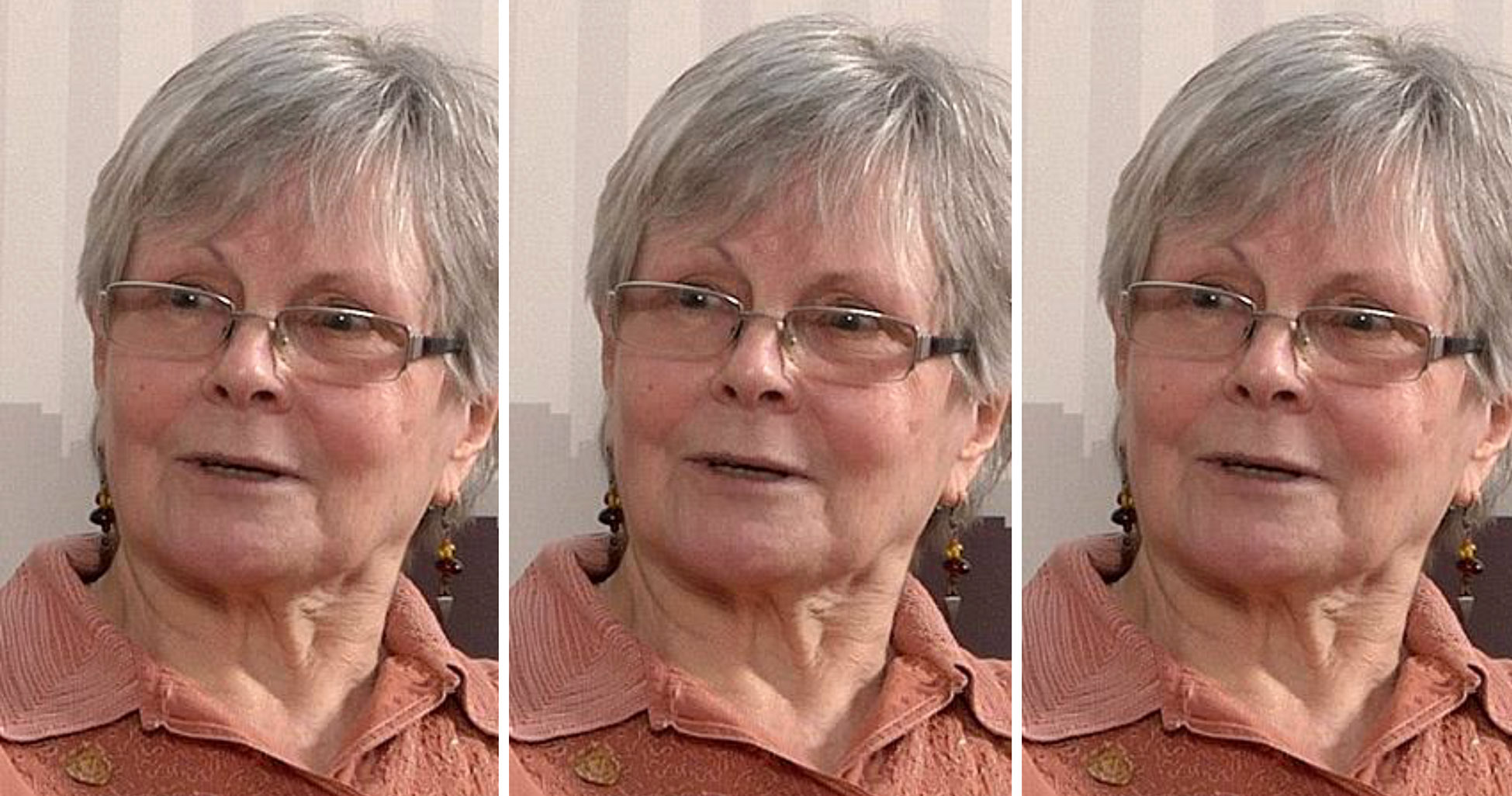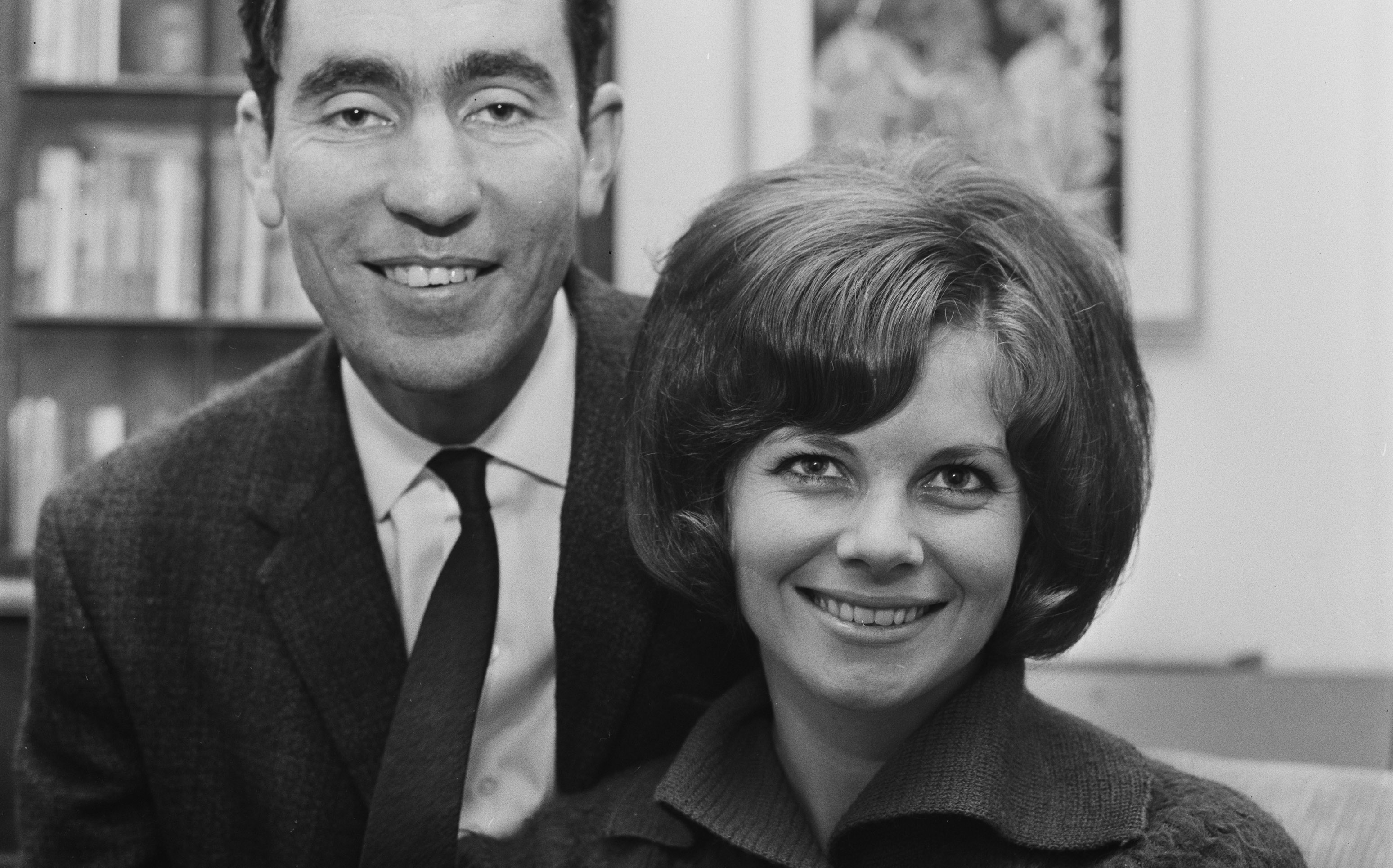OBITUARY
Stephanie Kemp, 1941–2023 – A fierce patriot and warrior of the South African Struggle

A startling beauty whom the media likened to Grace Kelly, Stephanie Kemp, who has died aged 81, was a fierce patriot who never forsook her Afrikaner heritage, in all its complexity.
Stephanie Kemp’s death at the age of 81 has brought outpourings of grief. A warrior of the Struggle, tried and detained under the Sabotage Act in 1964 with four others, she was the first white woman to be assaulted in prison.
A startling beauty whom the media likened to Grace Kelly, Kemp was a fierce patriot who never forsook her Afrikaner heritage, in all its complexity. In 2017 she published Through an Unforgettable Storm: The Forging of a Loyal Cadre, one of the best and most detailed South African memoirs published in recent years.
In it, she writes: “My African beginnings hang heavily on me – I was birthed in the selling of people and the stealing of land… This is my tribal identity. I know the culture. I feel it. A part of me responds to the story of my forebears. But how is pride possible in a land soaked in white cruelty?”
Kemp’s memoir traces her family history back to the 17th century, taking us to the year of publication, 2017. Her moving story begins with the unforgettable storm into which she was born, in the all-white Karoo town of Steynsburg in June 1941, “a vivid portent” of her life’s journey from a conservative lower-middle-class family, in which she was raised under the shadow of the Dutch Reformed Church, which fostered what she called “the disease of whiteness”.
Her beautifully reconstructed childhood is illustrated with photographs; Stephanie at the water tap aged two; Stephanie dressed as a bee in a school play three years later; later posing with a Friesland cow for a Dairy Board advert.
Sadly, the golden locks and smiles belie the darker reality she experienced as she watched both girls and boys lining up waiting to be caned by her primary school principal father, Jacobus Johannes Kemp.

Stephanie Kemp.
(Photo: Facebook)
He was an authoritarian patriarch and a passionate nationalist. His marriage to her mother, Millie Gladwin, in the Methodist Church in Lusikisiki in 1933 precluded him from membership in the Broederbond, a secret society founded in 1916 predicated on the exclusivity of the Afrikaner race.
He ruled his household, which included Stephanie and her two sisters, with a flyswatter. This was no marriage made in heaven, and her bitter, angry, unforgiving father and beautiful, unsure and compliant, loving mother separated when Stephanie was 11. Her parents remarried later and remained together till parted by death.
Stephanie Kemp joined the Defence and Aid Fund in the Cape, and at UCT, where she studied physiotherapy. She became radicalised when recruited into the SA Communist Party (SACP) in whose ideology she found a viable solution to apartheid.
The Extension of Universities Act (1959) ensured the university would be white “despite liberal stirrings” and it remained white, “even our souls were white”. She was taken to Caledon Prison during a demonstration against the Sabotage Act of 1962, which introduced detention without trial for acts of terrorism that remained unclear.
Soon afterwards, in what she refers to as her naivety, she was recruited into the African Resistance Movement (ARM), a small, largely white, liberal underground movement. She was seduced by the charms of Adrian Leftwich, whom she liked “despite his liberalism and its implications of anti-communism”. It was a curious anomaly in view of her continued membership of the SACP, for 50 years.
In hindsight, she understood that the ARM’s commitment to violent resistance was inconsequential “in the great historic mission of ending white minority rule”.
Among the ARM’s few successful attempts to blow up apartheid’s structures was the destruction of a signal cable on a suburban Cape Town railway line, in which she played a part. Later, when pylons were destroyed, she and others recruited by Adrian Leftwich were betrayed by him when he “gave the names” under torture.
“There but for the grace of God go I,” she thought. The names given were Randolph Vigne, Eddie Daniels, Spike de Keller, Tony Trew, Mike Schneider – and Hugh Lewin. However, unlike Lewin, who took several decades to forgive Leftwich, Kemp understood the pressures of terror.
In an obituary for Leftwich, who died in 2013, she wrote that “to most people he was forgotten, irrelevant. But to a few, those who had been close to him, there was a continued public rejection, usually from very high moral heights. The Adrian I got to know in this last decade was the same man I admired when we were 23”.

South African-born activist and lawyer Albert ‘Albie’ Sachs marries Stephanie Kemp, a member of the African Resistance Movement, ANC and SACP, in London, UK, 30th September 1966. (Photo Evening Standard / Hulton Archive / Getty Images)
She had nonetheless never forgotten the trauma of her torture. She writes that when interrogated in detention, she was “cocky … flaunting my contempt for their racist fascism in their faces”.
Details of her beating resonate, like a gong, long after reading:
“If you behave like a man”, the usually inept van Wyk screamed “I will treat you like a man”. Then whining “Stephanie, I know you hate me” “no I don’t hate you van Wyk”. “Stephanie I know you hate me”. “No, I don’t”. On and on. “I know you hate me”. Winding himself up. Exasperated, I changed my response “Okay, van Wyk, I hate you”. Suddenly, completely unexpectedly, shockingly, he hit me. Slapped me across the sides of my head. With hard flat hands. Thwack thwack thwack…… Fast.
She writes: “three of us would plead guilty to the much less serious charge of belonging to an illegal organisation under the Suppression of Communism Act”. After three months of solitary confinement she and other comrades were charged with sabotage, punishable by death. In the end she served a two-year prison sentence – at 24 she “had been through a lot…”.
Albie Sachs, whom she “knew by reputation as a courageous communist” and who was later to become a Constitutional Court judge, was included in her legal team at her request.
She never got over the fact that her father had petitioned then Justice Minister BJ Vorster for her release and she was shamed by the privileged treatment she received. “Four of us in the Cape Town trials, all white, had our sentences reduced; Eddie Daniels spent his full 15 years on Robben Island. Early release or parole was unheard of.”
She left the country on an exit permit and, of her farewell statement to the South African government at the age of 25, she writes:
“My departure was raised in Parliament where I was called an ‘enemy of the state’. Die Burger published an interview: ‘Ek is nie jammer oor wat ek gedoen het nie. Ek is vandag ouer, maar sal weer net so optree… Natuurlik glo ek nog in geweld. Dis al manier om van hierdie regering ontslae to raak…’ [I’m not sorry for what I did. Today I am older but would again behave in exactly the same way… Of course I still believe in violence. That is the only way to get rid of this regime…] I was twenty-five years old.”
In exile in London, she married Sachs, seven years her senior, who was away all week. She was lonely and depressed. Joe Slovo, who headed the SACP, influenced her political thinking “more than anyone else”.
“In those early exile years we worked closely together and in 1967 he became the great love of my life in a relationship that was to last for 20 years.”
She and Sachs adopted a son, Alan, when he was three weeks old in March 1970. “Within six months I was pregnant with Michael.”
In her memoir, Stephanie Kemp writes that the Bureau of State Security informed Albie Sachs about Stephanie’s affair with Slovo.
Kemp wrote that Slovo teased her about her loyalty to him, how he boasted of his own exploits with women and that Slovo’s wife, Ruth First, noted that Stephanie was Joe’s “doormat”.
In her memoir, she writes about having grappled – in a pre-#Metoo era – for two hours with “a comrade leader “(no name given) who took her to a room during a conference, under a ruse. “It was difficult. He was a leader and for that I respected him. I felt I could not show the anger and contempt that I felt for his actions.” It was to be some time until she learnt of “women’s empowerment” at a meeting of ANC women in Harare in 1989.
Kemp served as secretary in the London offices of the ANC, underwent military training as a member of Umkhonto we Sizwe (MK), the ANC’s armed wing, learnt later of the torture in ANC camps in Angola, lived through the aftermath of the assassinations of comrades, including Ruth First, Joe Gqabi and Dulcie September.
A UCT-trained physiotherapist, Kemp nursed Sachs when he lost his right arm and was blinded in one eye in a car bomb explosion in Maputo after their divorce.
Reflecting on her relationship with Sachs, Stephanie said that he needed an independent woman, which she never was. In response to my request for comment, Sachs wrote: “Stephanie was a brilliant personality, powerful, quick-witted, brave and creative. Also very vulnerable, with great highs and lows in her life. We went through an enormous amount together at a time of great oppression in our country. We loved our children, Alan and Michael, very dearly. We have many, many wonderful memories of things she did in her own inimitable Stephanie way.”
In 2008, as an SACP stalwart and provincial secretary, she resigned from the ANC and the SACP. In a statement to the ANC Veterans League, Kemp said: “I am 67 years old, and I was recruited into the South African Communist Party in Cape Town in 1962. I formally joined the ANC in 1969 after the Morogoro Conference opened membership to non-Africans. My political beliefs and values were forged and tempered by stalwarts of the Struggle who are no longer alive. This Party, that has taken control of the ANC, is not the Party of Joe Slovo, Alex la Guma, Yusuf Dadoo, or Chris Hani.”
She cited the fact that debate and party work had been replaced by a systematic vilification campaign, “strident in stirring up hatred towards the National Democratic Revolution (NDR) in general and the ANC/State President (Thabo Mbeki) in particular”.
She hoped for a regrouping under the then-newly formed Congress of the People (Cope), which promised “a return to the values necessary for taking our country forward”. Her brief stint with Cope did not last, but she continued to campaign for justice and dialogue.
In 2021 she wrote to me on Messenger, “It is not fun getting old, as I always say, but at least there is the internet.” She chatted about her days in the sun, about the “mounds and mounds” of books she was reading, about her sons Alan and Michael, Michael’s wife, Gadi Magagane, and her two grandchildren, Mahlasedi and Lewatle. DM
Maureen Isaacson is an independent South African journalist.
An amendment of a personal nature was made to this article due to family sensitivities.


















 Become an Insider
Become an Insider
Thank you, Maureen Isaacson. That’s Stephanie.
What a great article. A life lived and yet sadly lost.
How the politics of this nation have shaped our fragile existence.
Having spent 90 days in solitary confinement and 18 months in Pollsmoor, I have first hand experience of a white English speaking male living and working as a constable in the then Afrikaans
dominated SAP.
My ‘o’ my, her story brought back long forgotten memories of that trauma.
May we all one day live without this terror called politics 🙏🏻
Excellent article, Maureen. Hers was a name I have often heard but I knew so little about her. I’d like to read her memoir but it doesn’t seem readily available. I’ll keep looking.
The ANC has let us all down….
RIP Stephanie Kemp.
Thank you, Maureen Isaacson, for your wonderful tribute to Stephanie Kemp. There were heroes in that terrible time.
Maureen Isaacson has written brilliantly. I knew Stephanie when we were UCT students together. We again linked up when we both joined COPE.
A life lived well…congratulations Comrade!
Although I never had the honour and privilege of meeting Stephanie Kemp, I have heard a lot about the brave lady. Lovely article and will now make a point of getting hold of a copy of her memoir.